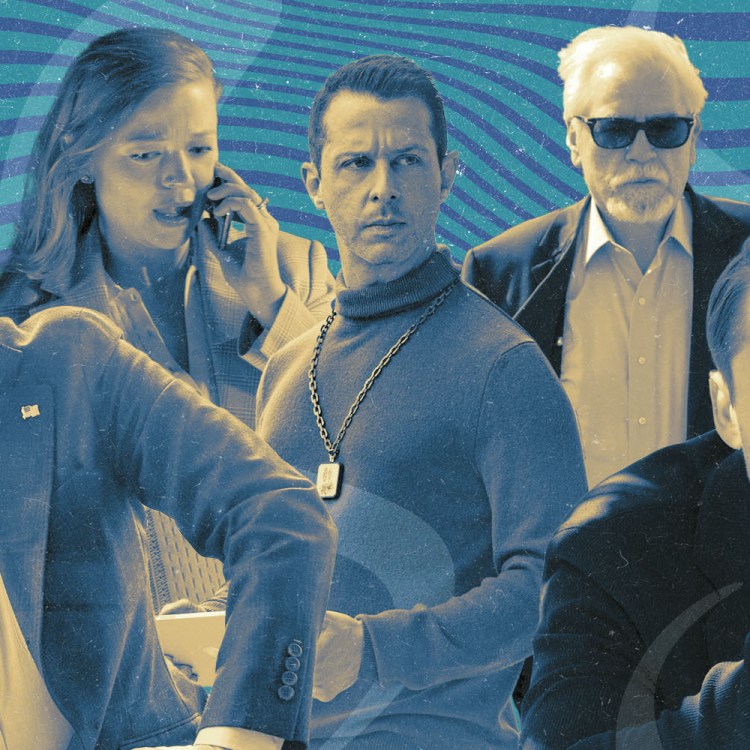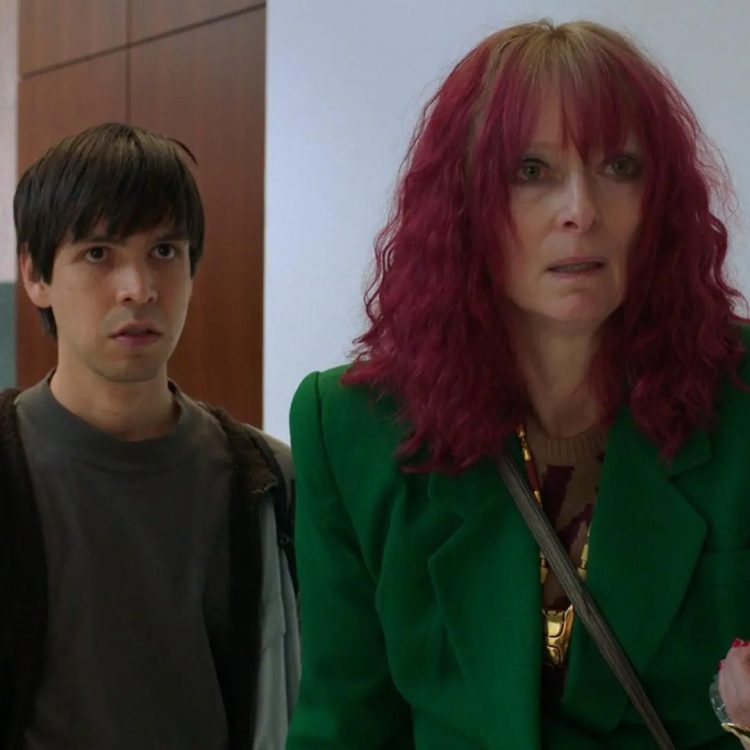Viewers are as excited about the return of The Crown Season 2 as they are about that Star Wars: The Last Jedi pastiche–and, yet, what the Netflix series has, besides elegant writing, sumptuous costumes, fantastic acting, gorgeous interiors, yachts and Bentleys, is a moral core.
I may not have realized as I cued up the streaming service, but what I need most right now is an ethical beacon in these relativist times. And, it turns out, it is a small woman named Elizabeth with a creamy complexion standing in sensible heels and a cardigan, pocketbook dangling from her wrist like a shield of old-school femininity, struggling to do the right thing.
Oh, what a relief! The appeal isn’t that she’s the white monarch authority figure telling us what do but, that, in this period-perfect miniseries, plumbing the difference between right and wrong and acting on it matters. Morality is back in vogue (at least for a few hours of binge-watching)! And there are universal lessons for those without the royal lineage.
If you’re an adult in the West dealing with a restless spouse, spoiled siblings, sensitive children, rebelling clients and arrogant male co-workers, it may seem old-fashioned to ask ‘What would the Queen do?’ And it is – it’s no more fashionable than Queen Elizabeth herself. But who would ever in a thousand sequels seek solace asking: What would a Wookie do?
When confronted with marital infidelity and navigating a long marriage buffeted by history, what would the Queen do?
There’s a lot of suffering in stiff-upper-lip silence, wrapping oneself in a magic cardigan. This is a woman who has more cashmere sweaters than a Land’s End catalog. But they symbolize both luxury and comfort and she wraps herself in that British woolen classic while she contemplates not how to feel better in the moment but how to achieve a long-term solution while acknowledging the limitations of the marital bonds as two people journey through life’s challenges (which are inevitable whether queen or commoner). While her husband Philip Mountbatten’s best friend Michael cavalierly declares that marriage is an institution and who wants to live in an institution, it’s the Queen who seeks stability within the confines, a comfortable bed behind the bars. There is no such thing as a perfect marriage and, so, when she finally sits opposite her sulky husband having consulted her trusted counselors she’s unflinching. She asks him what he really wants to rescue a relationship when there is no possibility of the parole of divorce – and she keeps on topic. She neither whines nor whinges but listens carefully. She solves – and there’s never any doubt that her word is her bond. (The couple celebrated their platinum jubilee in November.)
When disappointed by ambitious, arrogant politicians who crumple like foil under the pressures of office, what would the Queen do?
Mollycoddle? Not this woman. As she confronts the mustached Prime Minister Harold MacMillan when he submits his resignation prematurely after spending decades angling for that very power, Her Royal Highness says in a voice straight out of the nursery, “I’ve been Queen barely ten years. In that time I have had three Prime Ministers, not one has lasted the course.” She is essentially calling him a loser and, in some way, marveling that it is she, the apparently “weak” woman lacking the ubiquitous Eton-and-Oxford education who has stayed the course. Among the many lessons here is that it is one thing to be weak – another to act on weakness. This is the power of hard-earned confidence and clear-eyed thinking. Her goal is unequivocal: the common good, not her own ego (although she is not without vanity or fault). It is a beautiful thing to watch because it is an example of the power of right, of standing with a straight back and speaking the truth as hard as it is to do so.
Stepping off-script, one has to wonder, when confronted with the repulsive prospect of sexual harassment by powerful men, whether in the White House, the State House or a suite at the Ritz Carlton, What Would the Queen Do?
As a Christian, she would in no way condone men who broke the big-ten commandments and preyed on women, particularly those who were less powerful, whether the perpetrator was a Trump or a Weinstein or a Moore. While beheadings are out of vogue, I believe that, given the appropriate protocol, she’d call the offender for an audience at Buckingham Palace and in no uncertain terms demand a resignation. Yes, there must be proof and due process, but this is an unequivocal moral issue. The queen demonstrated a hard-won forgiving heart with her own husband, but in these matters, she would hold no quarter. Yes, spouses stray, but certain behaviors are immoral – a grown man grooming teens, or touching women without consent, or raping them under the promise of promoting their future careers. She would remain above the fray – not penning op-eds nor tweeting – censuring those who acted out in conduct unbecoming to a human.
A Moral Compass
I am a child of the sexual revolution born on the cusp of the 1960’s, a rebellious era in which communications have metastasized from three channels on the television beneath the rabbit ears to 24-hour news and culture saturation; a phone in every house has become a smart device in every hand. The President is a mere Tweet away but we’ve lost the human touch of compassion with each other. With all we’ve gained, we’ve sacrificed a fundamental moral virtue: lies are wrong, sexual abuse in all its many facets is abhorrent. As a nation of English speakers, we need to recalibrate our moral compass. Every individual is responsible for confronting chaos and corruption. Asking “What would the Queen do?” is a start.
This article was featured in the InsideHook newsletter. Sign up now.






















